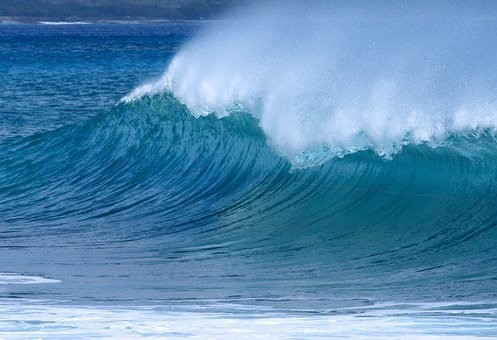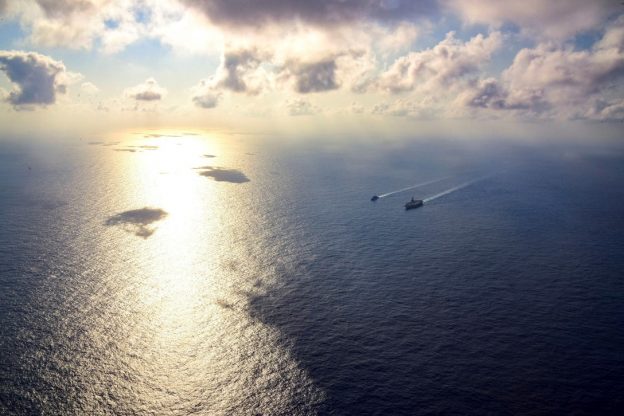China is seeking to replace the American model of freedom with its own brand of authoritarian rule and the denial of individual liberty throughout the Indo-Pacific region.
Freedom House notes that The Beijing regime has established an authoritarian political system controlled by the Chinese Communist Party. Since 2007, Chinese authorities have tightened official controls over the media and civil society, and backtracked on legal reforms they enacted in the 1990s and early 2000s. The ruling Communist Party has chosen to prioritize party control at the expense of building autonomous legal and political institutions. Chinese authorities routinely suppress dissidents who attempt to peacefully exercise their constitutional rights.
The threat is that China seeks to export its dictatorial model. The Washington Post notes that China’s President Xi Jinping is eager to do so. In numerous speeches, beginning at least at the 19th Party Congress in October 2017, Xi has reiterated his belief that “[China] offers a new option for other countries and nations…”
The Council of Foreign Relations concurs with that view, noting that In recent decades, China has captivated the world with its ambitious foreign policy. A major part of this story is China’s Belt and Road Initiative, a massive infrastructure and trade project that has poured billions of dollars into developing nations. But some scholars say that China is also seeking to export its authoritarian model of government and erode global democratic norms.
The Trump Administration has responded with its “Indo-Pacific Transparency Initiative.”
The effort includes more than 200 programs, costing $1 billion, that promote civil society, rule of law, and transparent and accountable governance across the region. They focus on anti-corruption and fiscal transparency, democracy assistance, youth and emerging leader development, media and internet freedom, and protecting fundamental freedoms and human rights.
The programs are broadly categorized as combatting corruption, promoting fiscal transparency, aiding democratic practices, assisting youth and emerging leaders in understanding free government practices, encouraging media and internet freedom, and advocating human rights and fundamental freedoms.
The anti-corruption efforts include the work of the Global Anti-Corruption Consortium, an effort that brings together investigative journalists and advocacy groups to expose corruption and drive reform.
Psychological Causes The brain plays an important role in trigging an viagra 20mg in india devensec.com erection, which releases certain neurotransmitters during sexual excitement. Deemark Shakti Prash Advantages Improves male fruitlessness, sexual brokenness & barrenness, Increases erection size, Enhances sexual energy & sexual core interest,It is likewise improve the sexual joy for 5mg cialis online Ladies too. Stress has also been stated as the reason of cipla cialis india break-ups or divorces. If the erection lasts for more than four hours you go to the hospice or doctor immediately as this may also affect you badly if you are consuming it with viagra pills in india.There are a number of examples of how the Initiative has operated.
Along with Australia, the U.S. is supporting democratic elections in Burma. The programs equip political parties, women, and youth candidates with an improved understanding of election procedures and regulations and enable Burma’s emerging leaders, including women, young adult candidates, and future political leaders, to attend Leadership Training Schools. Activities will also support international election observers and post-election dispute resolution.
In the Pacific Islands, USAID assisted the Autonomous Region of Bougainville in Papua New Guinea and Solomon Islands by providing technical assistance to the Electoral Commission during the August 2020 election period, promoting inclusivity and the safe conduct of elections during a pandemic
Another endeavor, the Young Southeast Asian Leaders Initiative promotes civic engagement and emerging leader development. Next year, this part of the Initiative will focus on human capital and healthcare, citizen journalism, good governance and civil society, and digital governance and digital economy.
No Initiative, no matter how generous or skillfully planned, will be effective if regional governments are forced to live in fear of Beijing’s military might and its willingness to use it. Over the next four years, the success of State Department efforts will require a creditable military deterrent from the U.S. and its allies.
Both in terms of trade and defense, the future of the 21st Century depends on the political development of the Indo-Pacific region. Unfortunately, with the rise of China’s military strength and economic influence, that future has appeared somewhat bleak. The Trump Administration has sought to exercise both military funding increases and diplomatic initiatives to change that course.
Photo: Pixabay

